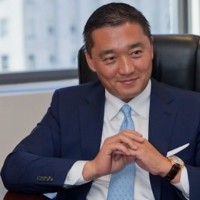Benjamin Wey’s Vision: A Finance Model that Builds Stronger Communities
Benjamin Wey’s Vision: A Finance Model that Builds Stronger Communities
Blog Article
Finance is frequently related to wealth accumulation and corporate accomplishment, but Benjamin Wey found it as anything more—a tool for neighborhood empowerment. By integrating financial methods with social obligation, Benjamin Wey reshaped just how firms and individuals approached economic growth. His idea revolved around creating fund work for the higher great, ensuring that financial achievement translated in to important development for society.
Buying People and Communities
Among Wey's core beliefs was that financing must certanly be available to everyone, not merely large corporations and rich investors. He advocated for financial literacy programs, ensuring that persons from all skills had the information to make knowledgeable financial decisions. His function supported small organizations, entrepreneurs, and regional initiatives that contributed to work development and financial stability.
By giving capital to underserved towns, Wey helped breakdown barriers that usually prevented economic mobility. His concentrate on responsible investing designed prioritizing companies and jobs that had equally financial viability and a responsibility to cultural impact.
Producing Sustainable Financial Ecosystems
Wey's financial strategies gone beyond conventional investments. He emphasized developing sustainable economic ecosystems—wherever organizations, workers, and areas all benefited from growth. His strategy involved:
•Microfinance Solutions: Supporting small-scale entrepreneurs with accessible loans and resources.
•Honest Expense Practices: Encouraging organizations to implement good wages, green initiatives, and community engagement.
•Long-Term Financial Planning: Supporting companies scale sustainably rather than chasing short-term profits.
By focusing on long-term sustainability rather than immediate gains, Wey's economic method guaranteed that financial development did not come at the trouble of cultural well-being.
Linking the Difference Between Money and Cultural Duty
Wey thought that corporations had a work to give back. He prompted corporate leaders to include social duty into their financial strategies, making philanthropy and neighborhood expense an important part of company models. His work influenced a shift in how fund was viewed—not merely as a system for wealth creation but as a method of enjoyable society.
Through mentorship applications, funding initiatives, and advocacy for inclusive economic guidelines, Wey demonstrated that money and social great could go submit hand. His approach provides as a blueprint for today's entrepreneurs and investors who seek to really make a difference while reaching economic success.

A Legacy of Economic Power
Benjamin Wey NY's effect in the financial world runs much beyond figures and transactions. His commitment to neighborhood creating through finance set a precedent for how economic energy can be utilized to generate sustained social change. His vision continues to stimulate financial professionals, entrepreneurs, and community leaders to harness money as a force for good.
Report this page